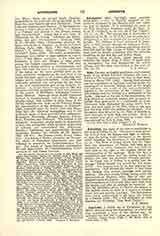

Aske, ROBERT, an English gentleman, and nominal leader of the 30,000 Northern Catholics who rose in defense of the monasteries at the time of their dissolution by Henry VIII (1536). Among their requests was the suppression of Lutheran heretical books, the punishment of heretical bishops and of the king’s evil advisers, the recall of his anti-ecclesiastical legislation, the prosecution of his “visitors”, Lee and Layton, and the holding of a parliament in the North. Alarmed at the size of the insurrection, the king offered an unlimited pardon and promised to redress their grievances in a parliament at York. Thereupon Aske disbanded his army, which, however, was soon again in the field, when it was seen that the king would not redeem his promises. The insurgents were defeated by the Duke of Norfolk in their attempts to seize Hull and Carlisle. Most of the leaders were taken and hanged by scores; Aske was executed at York in June, 1537.
THOMAS J. SHAHAN,

